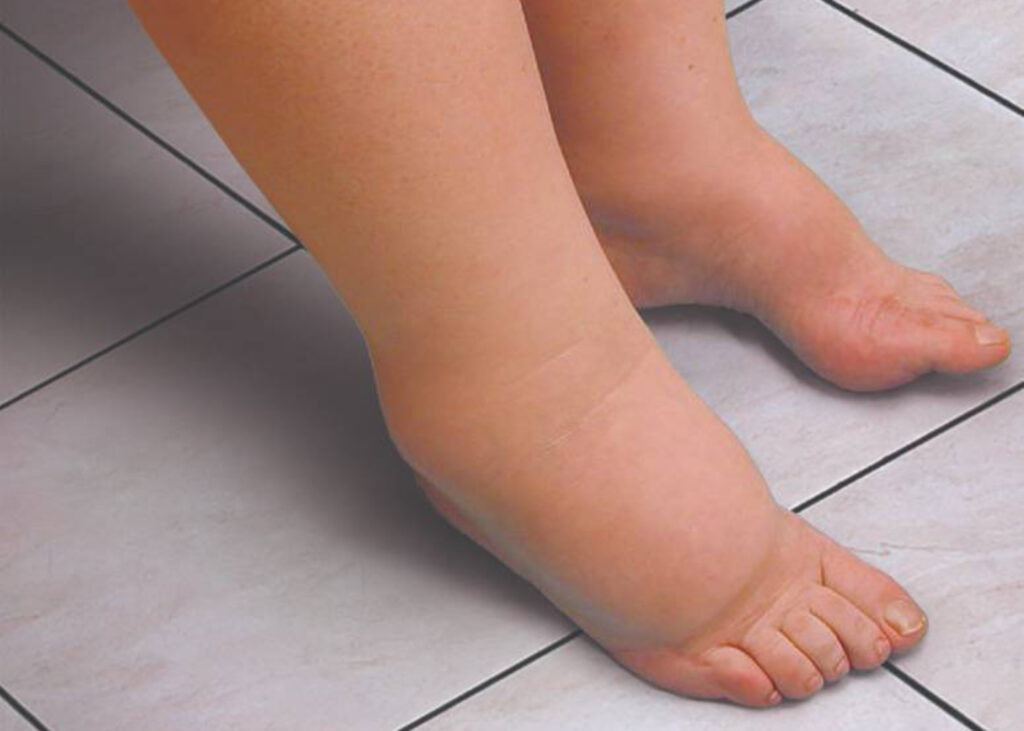Lymphedema Treatment
Compress your lymphedema...Decompress your mind
Lymphedema is a relatively common disease affecting more than 3 million people per year in the United States. Unfortunately, it is occasionally mis-diagnosed and it is often undertreated. At Vein & Vascular Experts, we are dedicated to helping people with lymphedema with treatment they desperately need.

Lymphedema Treatment Q & A
What is lymphedema?
Lymphedema refers to tissue swelling caused by an accumulation of protein-rich clear, yellow fluid that normally drains through microscopic lymphatic channels throughout the body to the lymph nodes. When these channels become defective or scarred, the lymphatic fluid backs up and pools in the body’s tissue, commonly affecting the legs. Lymphedema results in heavy, tired swollen legs. Left untreated, lymphedema can cause tight, thickened, unhealthy discolored skin that is prone to leaking fluid, repeated skin infections, and the development of skin sores/ulcers.
Who is at risk?
Lymphedema can be hereditary due to genetics (primary lymphedema) or is often due to cancer or the treatment for cancer (secondary lymphedema). However, lymphedema in the legs is often due to underlying vein disease (chronic venous insufficiency) where incompetent or narrowed veins increase pressure and load on the lymphatic channels resulting in leg swelling.
How is lymphedema diagnosed?
Diagnosing lymphedema is typically done with clinical evaluation by the vascular surgeon. There are no routinely performed tests to make the diagnosis. Usually, lymphedema is a diagnosis of exclusion. This means that, if after all known causes of leg swelling is eliminated or treated, swelling persists, then we make the diagnosis of lymphedema.
How is lymphedema treated?
The treatment of lymphedema involves the use of compression. This is because lymphedema occurs due to pressure that causes the lymphatic fluid to be pushed into the body’s tissue. External compression with massage, wrapping or pumps helps to remove that fluid out of the legs. Because of the close association between vein disease and lymphedema, diagnosis and treatment of underlying venous insufficiency is a critical part of treatment.
